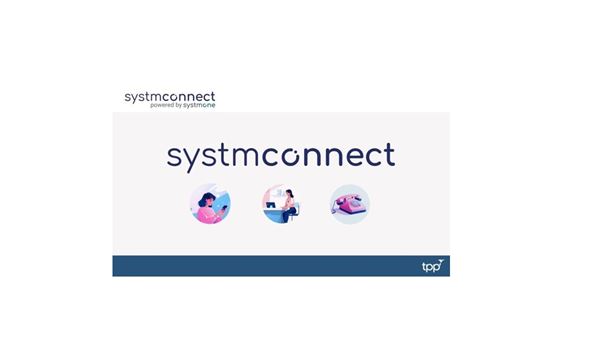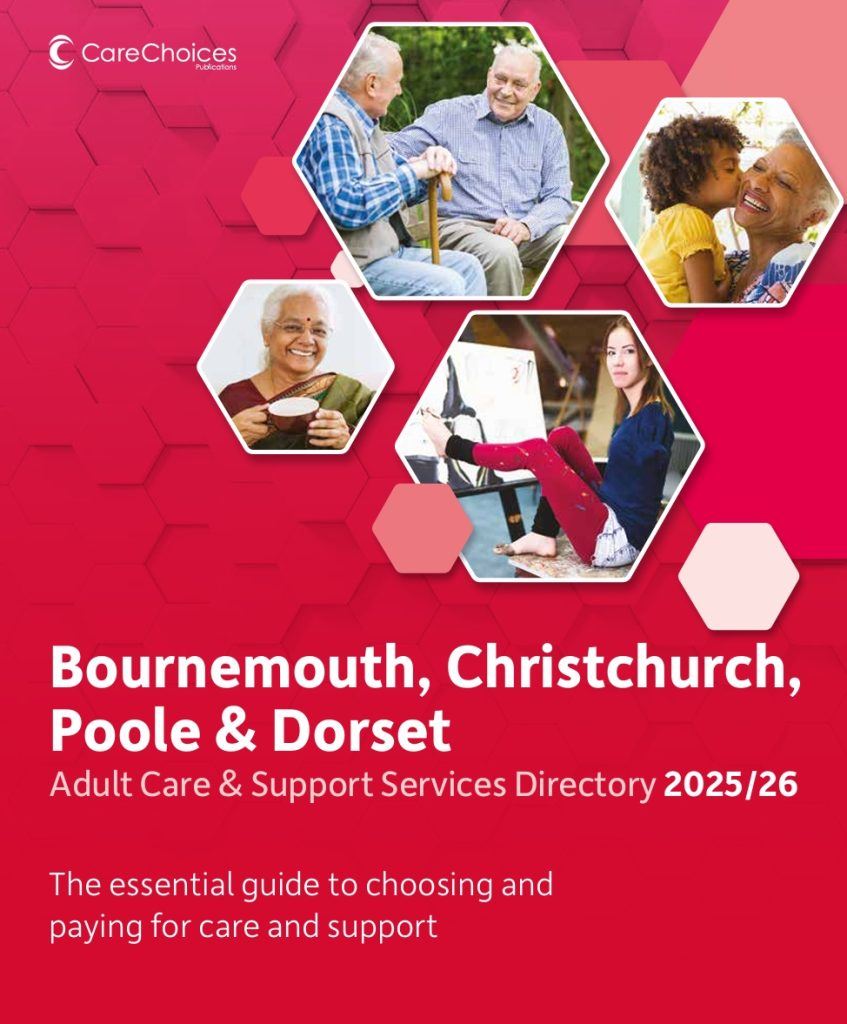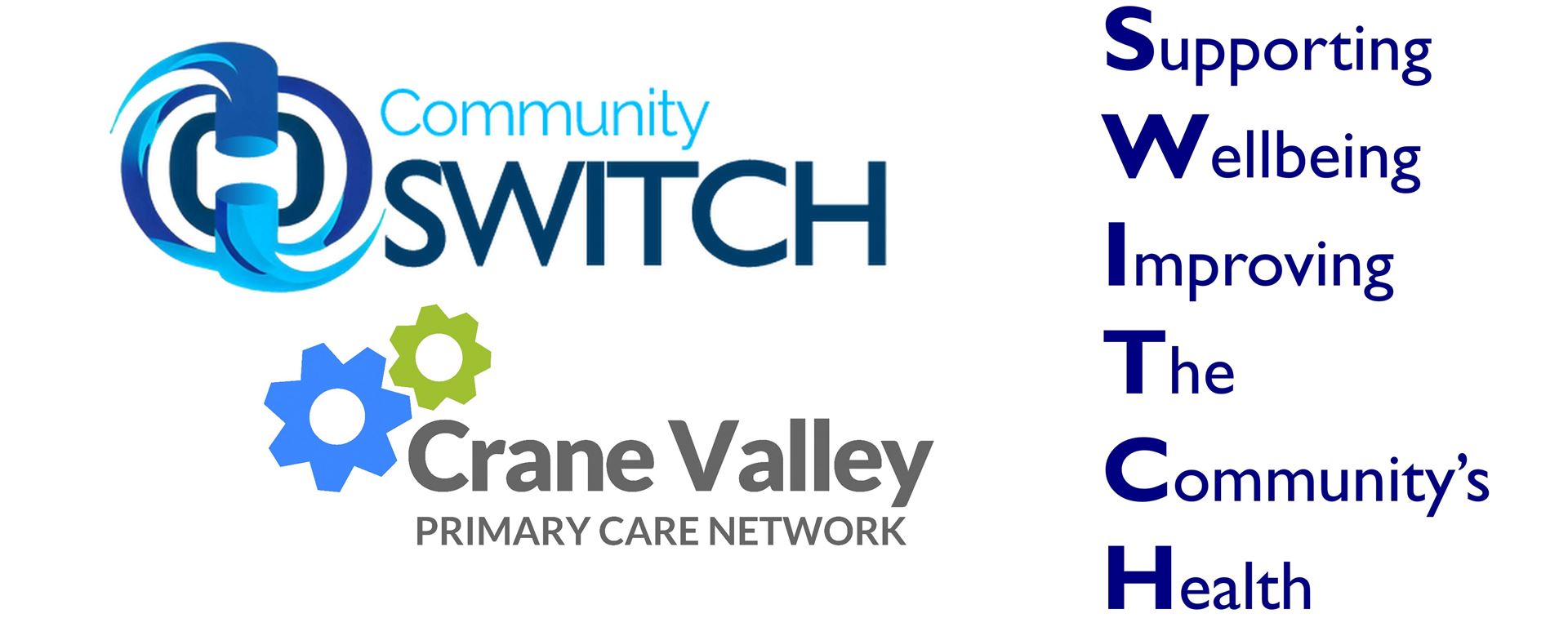Carers Support
Do you provide support to a friend, relative or neighbour who would not manage without it?
You might not think of yourself as a carer and think what you do is just part of being a parent, spouse, friend or sibling. But if you
- Are you helping someone with everyday household tasks like shopping, cleaning, cooking, washing or dressing
- Regularly transport someone to medical appointments
- Provide emotional or mental health support
you can be considered a carer by doing these things, and there is support available in Dorset specifically for you.
You can access the right support at the right time for you as a carer by taking TWO EASY STEPS.

STEP ONE: Are you a Carer? Let us know by completing and submitting the form below.
Why? Carers are at a much higher risk of becoming ill and it is important that you look after your own health and accept any treatment that you need as, ultimately, you cannot look after someone else without first looking after yourself. If we know who our patient carers are, we can improve the services we offer to you.
If you care for someone else, please let us know so we may update our medical records.
You can tell us you are carer online using SystmConnect or call us on 01212 825353 to let us know.
STEP TWO: Contact Your Local Carer Support Service
Scroll down for information about Carer Support in Dorset and how to get in touch.

Bridgit - the quick and easy online support tool
People who regularly look after a family member or friend can now explore resources to support them using an online tool known as Bridgit. It's quick and easy way for carers or cared for people to learn about health conditions, get personal advice and find local events and services.
Brought to you by Dorset Council, Bridgit allows people to explore free well-being, employment, finance and care advice and events, local and national support services and training opportunities. People can also build their own ‘self-care plan’. It’s all available any time of day and without registering first.
More about the Brigit tool
While registering as a carer unlocks more support, a listening ear, offers and discounts, we recognise people can be worried about requesting outside help. With Bridgit, people can discover the resources first, then sign up for more support if they choose to, and this can include an online carer’s assessment.
Designed by carers and care experts, Bridgit resources are tailored to the busy and often stressful lives of people who regularly care for others. It is also designed to be user-friendly, with simple navigation and a clean layout so people can explore comfortably, even with limited digital skills.
Visit www.bridgit.care/support/dorset to access the Bridgit tool. People who prefer not to, or cannot go online, can call contact the Carer Support Dorset team on the phone to discover the free support and help available. Please scroll down for their contact details.
Further information for Carers
Scroll down for more sources of information that you may find helpful as a Carer.
The Bournemouth, Christchurch, Poole & Dorset Care Services Directory includes:
Details of local care providers, guidance on what support services are available, and information on how to access social care in your area.
To get your free copy of the Dorset, Bournemouth and Poole care guide, please call: Care Choices Ltd on 01223 207770 or download a copy by following this link>>>
Carer Support Dorset
From November 2025, Carer Support Dorset no longer holds the contract to provide support to unpaid carers in our area.
The Dorset Carer Service is an independent service, funded by Dorset Council and delivered by Help & Care in association with MYTIME Young Carers, supporting people who care for others across the Dorset Council area.
Help & Care can connect you to a dedicated team of advisors and a range of support options.
Contact the Dorset Carer Service by phone on 0303 303 0153 or email carers@helpandcare.org.uk
Support for young carers is delivered in partnership with MYTIME Young Carers.
Follow this link to the Help & Care website for more information>>
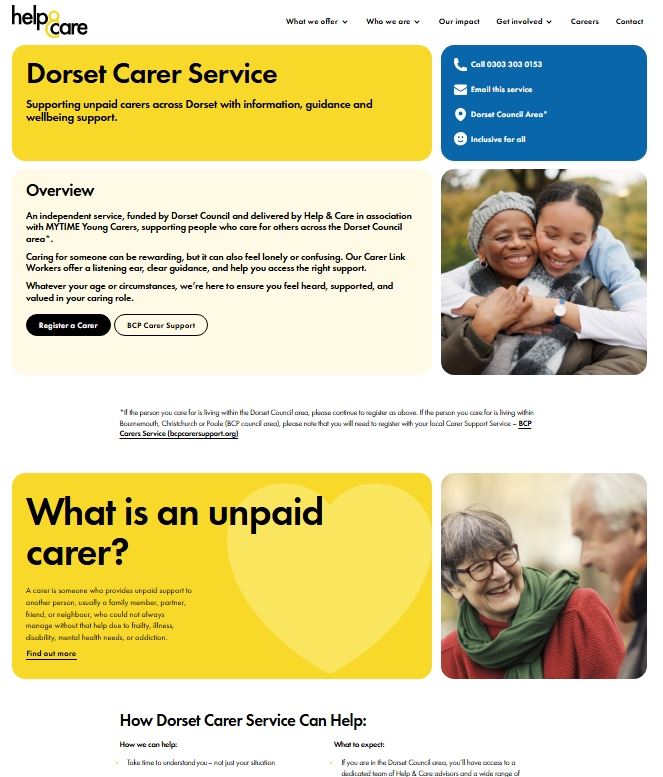
Carer Friendly ID Card
The Carer Friendly ID Card is provided by Forward Carers and is available for FREE to unpaid Carers who newly register with the Help & Care Dorset Carers Service. The card is also available for existing registered Carers who need to renew an expired card. The card is fully funded by Dorset Council to make life better for unpaid Carers.
Find out how to get your Carer Friendly ID Card and using this link>>
Events for Carers
Why not join our local Social Prescribing Team at one of our monthly Carer Afternoon Teas, and enjoy a friendly chat or receive useful support and advice.
All carers (and cared for) registered with any of the surgeries in our network are welcome!
For more information, please call or text Rachel on 07462 521670, Kate on 07462 050616 or email cranevalleysocialprescribers@dorsetgp.nhs.uk
Scroll down for our 2026 Carer Event dates.

Verwood based events
Heathlands Heritage Centre
The Potters Wheel
Manor Way
Verwood
BH31 6HF
Between 2 pm and 3.30 pm on:
Monday 23rd February 2026
Monday 27th April 2026
Monday 22nd June 2026
Monday 24th August 2026
Monday 26th October 2026
Monday 21st December 2026
Ferndown based events
Parley Place Care Home
300 Christchurch Rd
West Parley
Ferndown
BH22 8SL
Between 2 pm and 3.30pm on:
Monday 26th January 2026
Monday 23rd March 2026
Tuesday 26th May 2026
Monday 27th July 2026
Monday 28th September 2026
Monday 23rd November 2026
Our Dorset
Our Dorset is a partnership of health and social care organisations working together to deliver Integrated Care Systems.
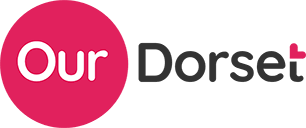

Many people living with Dementia feel that having support along their journey will maximise independent living and prevent a crisis.
The Dementia Coordinator Service, delivered by Help & Care, is committed to supporting people to live well with Dementia.
The service is available to everyone across Dorset, age 18 and over, including support for immediate carers and loved ones.
Once a diagnosis has been confirmed, the Memory Assessment Service will make a referral to a Dementia Coordinator at Dorset Healthcare. However, Help and Care will accept self-referrals and referrals from GPs and other stakeholders as long as a diagnosis of Dementia is confirmed.
Help and Care work in partnership with Dorset HealthCare University NHS Foundation Trust, NHS Dorset and Age UK, as an integral part of the Dementia Services Pathway for Dorset.
For more information, download and view this Help and Care leaflet or visit their website by following this link>> www.helpandcare.org.uk/services/dementia-coordinator-service
The Dementia Adventure Team
There are over 900,000 people living with dementia in the UK, and nearly 750,000 caring for them at home.

Tracker and Frailty Service
Many older people living with frailty are taken to hospital by ambulance but then turn out not to need hospital care. The Tracker service is for those patients over the age of 65 who may need assistance and support.
Carers in hospital
Are you caring or would you lik to continue to care for your cared-for person if they were admitted to hospital?
Find out more by following this link to the University Hospitals Dorset website>>
Find out more by following this link to the Dorset HealthCare University website>>
Social Prescribing and Well-being Services
For many people, circumstances beyond the purely medical such as fatigue, grief, isolation, loneliness, finances, or their role as a carer, can affect their health. In addition, long term conditions such as anxiety, depression and pain can give rise to additional worries, issues and needs.
At its most basic, a social prescription offers the kind of help that doesn’t come in a tube or a bottle. The idea behind Social Prescribing is to help you have more control over your health and find ways to improve how you feel in a way that suits you. That might mean being introduced to a community group, a new activity or volunteers to help around the house. On the other hand, it might be information and guidance: a bit of inside knowledge on your situation and what local resources are available.It could even be some support to create something new such as a fishing group or gardening club.

NHS Links
There is a wealth of information on the NHS Website about carers and caring. Below are some links into the site that we hope you will find useful.
- A guide to care and support
Information for carers and people who have care & support needs. - Caring for someone
Advice on providing care, medicines etc. - Care after hospital
Providing care for people who have been recently discharged from hospital. - Taking a break
Caring for someone can be a full-time job - find out about accessing breaks and respite care. - Support and benefits for carers
Caring for someone can be a full-time job - find out about accessing breaks and respite care. - Work and Disability
Guidance, support and help with employment issues. - Being a Young carer
Advice for carers 18 or under and their entitlement to support
Finance & Law
Help claiming benefits, looking after your bank balance and understanding the legal issues of caring.
- Benefits for the under-65s
Advice and information on helping the person you look after get the benefits that they are entitled to. - Benefits for the over-65s
Advice and information on financial support for older people with a disability or illness. - Carer's Assement
How your benefits maybe affected after the death of the person you look after and what happens to their benefits - Other benefits
Advice for carers and the people they are looking after on claiming a whole host of other benefits unrelated to their disability or caring
Page created: 26 February 2024
